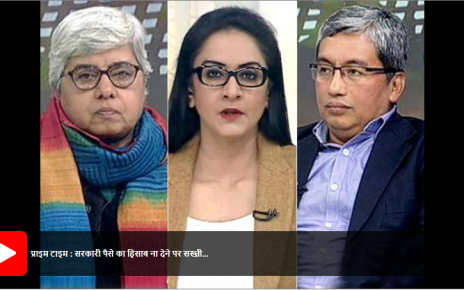The New Indian Express
Published: 19th August 2018 08:50 AM
The rights body took the action after a complaint was lodged by the families of the victims killed in the alleged fake encounters.

Between April and July this year, as many as 745 deaths took place in judicial custody and 52 in police custody in India. This means, six people died in prison every day in these four months. Most of the custody deaths were reported from Uttar Pradesh. Rampant, brazen violations of human rights in India is not a new thing, but the massive spike in custodial deaths not only undermines the country’s reputation worldwide, but also the faith of citizens in the State and administration, particularly the police.
The National Human Rights Commission, the human rights watchdog in India which has been monitoring the increasing cases of custodial deaths across the country, says that massive overcrowding in prisons, lack of healthcare for prisoners and brazen non-compliance of norms by jail authorities are the major reasons for the high number of casualties. Between March and June this year, the NHRC recommended a compensation of over Rs 1 crore for custodial as well as police deaths in Uttar Pradesh alone. The NHRC also gave compensation of Rs 139 lakh for deaths is judicial custody (jail) and Rs 28 lakh for deaths in police custody from March to July this year. It had also issued notices to the UP Chief Secretary and the director general of police over the allegations of fake encounters and has constituted a five-member team to investigate 17 cases.
The rights body took the action after a complaint was lodged by the families of the victims killed in the alleged fake encounters. The 17 cases were mentioned in a complaint made by advocate Prashant Bhushan and members of Citizens Against Crime, a civil rights NGO.
UP also tops the list for police ‘encounters’. Last month, People’s Union of Civil Liberties (PUCL) had approached the apex court alleging that as many as 500 encounters have been carried out this year in which 58 people have been killed. PUCL had also alleged that about 1,100 encounters hadtaken place over the last year in which 49 people were killed and 370 others injured. The NGO, in its plea, has sought a probe into the encounters by an independent agency.
“The state should examine the increasing cases of custodial deaths. The primary question that needs to be raised is how can the police enjoy impunity while people are dying in custody,” said senior advocate Sanjay Parikh who appeared for PUCL before the apex court. “But the buck does not stop with the police officers being held responsible for this. As a long-term solution, there should be focus on jail reforms which will ensure that a more humanitarian approach is taken in dealing with the accused. This is possible when there is a dialogue on rehabilitation and not on punishment alone.”
Nationwide, a report by Asian Centre for Human rights released last month cited government data between April 2017 and February 2018 to show that there were 1,674 custodial deaths —1,530 in judicial custody and 144 in police custody during that period. Then there’s inhuman overcrowding. A 2015 National Crime Records Bureau (NCRB) report on prison statistics showed that India’s prisons are overcrowded by over 14 per cent.
Of the 1,401 jails in India, 149 were overcrowded by than 200 per cent as on December 31, 2015. In the case of sub-jail Sathyamangalam in Tamil Nadu’s Erode district, the rate was a staggering 1,250 per cent, with 200 prisoners kept in space sufficient for only 16 . In Maharashtra’s Roha sub-jail, 35 prisoners were kept in a space meant for three, resulting in 1,166.7 per cent overcrowding, said the NCRB report.
The inhuman conditions in Indian jails is also being cited by 62-year-old former Kingfisher Airlines boss Vijay Mallya, who has been on bail in the UK since his arrest in April last year, in fighting extradition to India. His team of lawyers had argued that photographs submitted by India showed “no natural light in the cell and no fresh air”.On an average, NHRC receives over one lakh complaints annually, which also indicates the increasing faith of the people in its functioning and their awareness about the importance of promotion and protection of human rights.
According to NHRC, 45 people have died between January 1, 2017 till March 31 this year in police encounters. According to the guidelines laid down by the apex court, each such encounter is required to be investigated on the basis of FIR, followed by a magisterial inquiry and thereafter, a criminal trial in accordance with law. A compensation of `20 lakh has been awarded to the family of deceased people who died in the police encounters across the country from March to July this year by the human rights body.
“It is high time now that responsibility is fixed on the police officers concerned who are involved in these encounters and deaths in custody so that a stricter message goes out in society,” says Prashant Bhushan.



